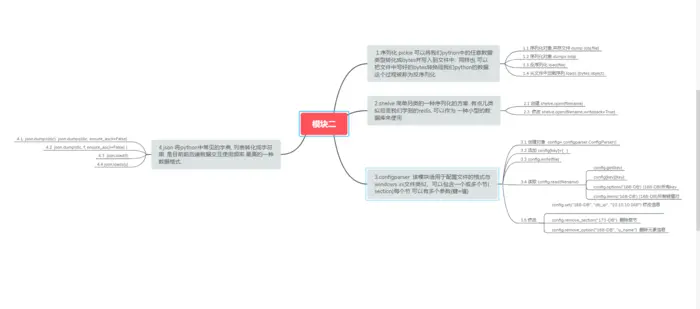
import pickle
# class Cat:
# def __init__(self, name, color):
# self.name = name
# self.color = color
#
# def chi(self):
# print("%s猫会吃老鼠" % self.name)
# c = Cat("汪峰","黑色")
#
# bs = pickle.dumps(c) # 把一个对象转化成bytes
# print(bs)
# cc = pickle.loads(b'x80x03c__main__
Cat
qx00)x81qx01}qx02(Xx04x00x00x00nameqx03Xx06x00x00x00xe6xb1xaaxe5xb3xb0qx04Xx05x00x00x00colorqx05Xx06x00x00x00xe9xbbx91xe8x89xb2qx06ub.') # 把bytes转化回对象
# cc.chi()
# print(cc.color, cc.name)
# c1 = Cat("汪峰1","黑色")
# c2 = Cat("汪峰2","黑色")
# c3 = Cat("汪峰3","黑色")
#
# lst = [c1, c2, c3]
# f = open("cat.dat", mode="ab")
# pickle.dump(lst, f) # 把对象写到文件中
#
# #
# f = open("cat.dat", mode="rb")
# lst = pickle.load(f) # 读取第一次
# for cc in lst:
# cc.chi()
class User:
def __init__(self, username, password):
self.username = username
self.password = password
class client:
def regist(self):
uname = input("please input your username:")
pwd = input("please input your password:")
user = User(uname, pwd)
pickle.dump(user, open("userinfo", mode="ab"))
print("regist successful!!!")
def login(self):
uname = input("please input your username:")
pwd = input("please input your password:")
f = open("userinfo", mode="rb")
while 1:
try:
u = pickle.load(f) # 从文件里把对象拿出来
if u.username == uname and u.password == pwd:
print("login successful !!")
break
except Exception as e:
print("login failed !!!")
break
c = client()
# c.regist()
# c.regist()
# c.regist()
# c.regist()
c.login()
import shelve
# d = shelve.open("sylar") # 文件类型的字典
# d['wf'] = "汪峰"
# d.close()
#
# d = shelve.open("sylar")
# print(d['wf'])
# d.close()
# d = shelve.open("sylar") # 文件类型的字典
# d['wf'] = {"name":"汪峰", "age": 18, "wife":{"name":"章子怡", "hobby":"拍电影"}}
# d.close()
# d = shelve.open("sylar", writeback=True) # 文件类型的字典 wirteback把修改的内容自动的回写到文件中
# d['wf']['wife']['hobby'] = "当导师" # 改
# d.close()
# d = shelve.open("sylar") # 文件类型的字典
# print(d['wf'])
# d.close()
d = shelve.open("sylar")
for k, v in d.items():
print(k, v)
print(type(d))
import configparser
# config = configparser.ConfigParser() # 创建对象
#
# config['DEFAULT'] = { # 特殊
# "name":"腾讯qq木马",
# "time":"qq更新时间",
# "version":"1.0"
# }
# config['SERVER_1'] = {
# "IP":"192.168.1.123",
# "port":"12306"
# }
# config['SERVER_2'] = {
# "IP":"192.168.1.178",
# "port":"12311"
# }
# config['SERVER_3'] = {
# "IP":"192.168.1.176",
# "port":"12312"
# }
#
# # 写入到文件
# config.write(open("qq.ini", mode="w", encoding="utf-8"))
# 读取内容
config = configparser.ConfigParser()
# 读取内容
config.read("qq.ini", encoding="utf-8") # 此时我们把文件中的内容读取到config
print(config['SERVER_1']['IP']) # 字典
print(config['SERVER_2']['name'])
print(config.get("SERVER_3", "IP")) # 字典
for k, v in config['DEFAULT'].items():
print(k, v)
# config = configparser.ConfigParser()
# # 读取内容
# config.read("qq.ini", encoding="utf-8") # 此时我们把文件中的内容读取到config
# config['SERVER_1']['NAME'] = "哈哈哈"
# config.write(open("qq.ini", mode="w", encoding="utf-8"))
import json
# # 准备一个字典
# dic = {"a": "小萝莉", "b": "大萝莉", "c": "猥琐大叔", "d": False, "e": None}
# # python中可以直接把字典或者列表转化成json
# s = json.dumps(dic, ensure_ascii=False) # pickle
# print(type(s))
# print(s)
# s = '{"a": "小萝莉", "b": "大萝莉", "c": "猥琐大叔", "d": false, "e": null}'
# d = json.loads(s) # 把json转化成字典
# print(d)
# print(type(d))
# dic = {"a": "小萝莉", "b": "大萝莉", "c": "猥琐大叔", "d": False, "e": None, "wf":{"name":"半壁*", "hobby":"皮裤"}}
# f = open("sylar.json", mode="w", encoding="utf-8")
# json.dump(dic, f, ensure_ascii=False, indent=4) # 4个空格 = 1个tab
#
# f = open("sylar.json", mode="r", encoding="utf-8")
# d = json.load(f)
# print(d)
# class Person:
# def __init__(self, firstName, lastName):
# self.firstName = firstName
# self.lastName = lastName
#
# s = '{"firstName": "尼古拉斯", "lastName": "刘能"}'
# def func(dic):
# return Person(dic['firstName'], dic["lastName"])
#
# p = json.loads(s, object_hook=func) # 通过函数func把字典转换回对象
# print(p.firstName, p.lastName)
# p = Person("尼古拉斯", "刘能")
# 把对象转换成json
# s = json.dumps(p.__dict__, ensure_ascii=False) # 方案一, 转的是字典
# def func(obj):
# return {
# "firstName": obj.firstName,
# "lastName": obj.lastName
# }
# s = json.dumps(p, default=func, ensure_ascii=False) # 方案二 转化的也是字典
# print(s)
dic1 = {"name":'毒液', "评分": "0.9"}
dic2 = {"name":'与神同行', "评分": "10"}
dic3 = {"name":'看不见的客人', "评分": "9.5"}
# lst = [dic1, dic2, dic3]
# f = open("movie.json", mode="w", encoding="utf-8")
# for d in lst:
# s = json.dumps(d, ensure_ascii=False)
# f.write(s+"
")
# f = open("movie.json", mode="r", encoding="utf-8")
# dic1 = json.load(f) # 当json文件中保存多个json的时候不能一次性全部都读取出来
# print(dic1)
f = open("movie.json", mode="r", encoding="utf-8")
for line in f:
line = line.strip()
if line == "":
continue
else:
d = json.loads(line) # 一行一行的处理
print(d)
